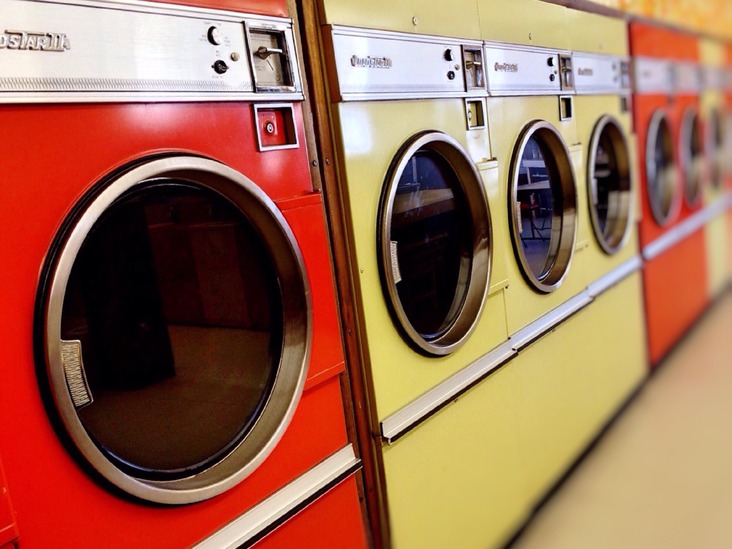My recent experience of buying a washing machine after my old one suddenly went kaput gave me a new appreciation for customer experience. In many ways, it’s now more important than brand, especially for small businesses. In my experience of working with brands of all sizes over the last two-plus decades, customer experience is a differentiator all brands must prioritize.
Several weeks back, I had an appliance technician out to repair my washing machine, only to be told, “It’s not worth repairing. It’s cheaper to buy a new one.” While that wasn’t the news I wanted to hear, I quickly started looking for the best available options. But first, I scoured reviews online.
- I read comments regarding the most reliable appliances on Reddit,
- I perused private Facebook pages for information on the most reliable washing machine brands and models, and
- I spent time on Wirecutter looking for their washer and dryer recommendations.
The highest-rated options were brands I wasn’t very familiar with: Miele, Speed Queen, Maytag, Samsung, and LG, among them.
Your brand is only a small part of the customer’s journey.
For years, GE was my favorite brand of appliances, having been in my household since the late-1990s when I purchased a washer and dryer set from a local appliance store in Atlanta. The pair performed flawlessly for years, before I eventually sold it to a coworker. I’ve always been brand loyal, a fact owing to my late father’s unwavering appreciation for a few select brands’ tools that served him well as a mechanic.
“Find you a brand that you believe in,” he’d say, “and stick with them as long as they suit your needs.”
I remained loyal to the GE brand for nearly two decades, mainly because the brand always served me well. Would I stay loyal? The more I shopped, the more I saw many of the highest-rated brands that I had little experience with, including LG, Samsung, and Maytag. I was strongly eyeing the Maytag and Samsung brands for their features.
Before I made a purchase, however, I wanted to give GE a fair shot, so I visited an appliance store that carried GE, among several other brands, in stock. I would let the store’s customer experience help me make the decision. If I was impressed with the experience, I’d buy a new GE. If not, I’d leave the brand behind.
Customer experience can transcend brand loyalty.
Upon entering, things were not looking good. The one gentleman behind the counter was on the phone and looked as if he was about to leave for the evening. So I waited. I wanted to see what he would have to say after he hung up the phone. I stayed right in front of the washers, about 30 feet to his left.
When the call ended, he walked over, apologized for the lengthy phone call (which was with a customer who needed help with a product she’d recently purchased) and asked what he could do to help. I told him my experience with GE washers, and my affinity for the brand. Then, he did a very smart thing: He highlighted how GE, while still one of the largest appliance makers in the world, was now likely not the best option for my needs.

He then walked me through the pros and cons of the various brands and models he carried, before showing me a Samsung that was on sale and available immediately. He wasn’t pushy or hurried, and he listened, providing feedback to my questions and objections. Then he gave me time to make the decision. Ten minutes later I walked out the door with a brand new Samsung washer.
What can this experience teach us?
Brand loyalty still means something, but it’s no longer all-important.
Today, customer service and customer experience matters more than price or the name of a product. They are not only two of the most valuable assets a brand has, they are often two of the most neglected. Thanks to Facebook, Twitter, Reddit, Quora, and sundry industry-specific forums, it’s next to impossible to bamboozle consumers with claims about one product being better than the other.
On the various message boards and social media feeds, customers are increasingly talking about companies having the best service or creating the best customer experience as opposed to simply which brand has the better product. Everything eventually breaks. We want the least amount of hassle when it does. Make customer experience your ally.
A simple step for a small business is to actively engage fans and followers on social media, highlighting that your company values their feedback. Then, when issues arise, they know they can seek resolution from you. Remember, you aren’t selling a product; you are ultimately selling an experience.
Customer experience can be your point of differentiation.
I freely admit that I do not engage with large companies in hopes of having a pleasant customer experience. Most often it is not. So those companies that provide an excellent experience stick out like the proverbial sore thumb. Make sure your front line staff, including sales personnel and help desk employees, think as much about retaining customers as they do gaining customers.
For example, why not ask sales folks to set aside a small portion of time each week to call 5 to 10 current customers with a simple “How is the family? Business doing OK? We’re here if you need us” message. Years ago, when I worked for ESPN, these phone calls helped me increase ad revenue year-over-year, cementing my belief in customer experience. Give it a try; you’ll become a believer as well.
My experience of working with hundred of brands has consistently proved to me that customer experience is a differentiator for small businesses.





